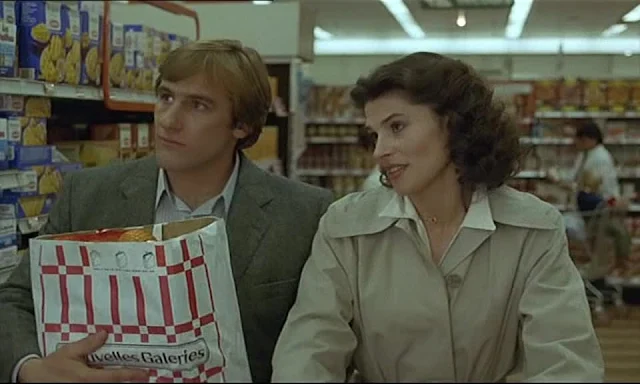 |
| Gérard Depardieu and Fanny Ardant in The Woman Next Door |
Matilde Bauchard: Fanny Ardant
Philippe Bauchard: Henri Garcin
Arlette Coudray: Michèle Baumgartner
Odile Jouve: Véronique Silver
Director: François Truffaut
Screenplay: François Truffaut, Suzanne Schiffman, Jean Aurel
Cinematography: William Lubtchansky
Music: Georges Delerue
François Truffaut's penultimate film skims along the surface of romantic melodrama (not to say soap opera) without ever really picking up any of that genre's essential energy the way filmmakers like Douglas Sirk or his great European admirer Rainer Werner Fassbinder were able to do. It's a film full of Truffaut touches, such as having the story introduced by a secondary character, Mme. Jouve, an older woman who has her own history of distastrously blighted love. Mme. Jouve even orders the camera about as she sets up the narrative. There are also some intriguing details about the characters that seem to have symbolic potential. For example, both husbands, Bernard and Philippe, have managerial jobs that involve transportation: Philippe is an air traffic controller, and Bernard trains the captains of supertankers, working in a large outdoor scale model of a harbor for tankers -- a job that superficially resembles the one Antoine Doinel held in Truffaut's Bed and Board (1970), except that Bernard takes it much more seriously than Antoine did. Unfortunately, there's not much story here: Bernard and Matilde had been lovers, and after their separation each married someone else. Now Matilde and Philippe have moved in next door to Bernard and Arlette, and the old love affair resumes, with painful results. It's only the finesse in the direction and acting, and the attention to secondary details like the ones just cited, that give The Woman Next Door resonance and depth -- though perhaps not enough.
Watched on Filmstruck Criterion Channel







